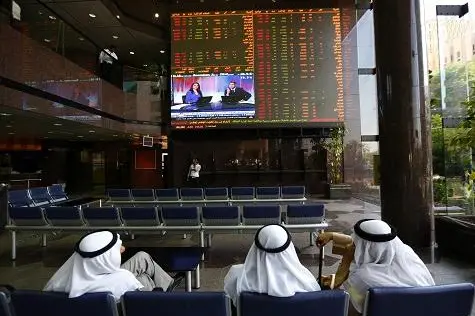PHOTO
Kuwait has loosened its capital market rules, allowing foreign investors to own a bigger stake of its local banks, according to a press statement issued by the Ministry of Commerce and Industry on Saturday, another step in the Gulf state’s bid to encourage more overseas investment into the country. (Read more here).
Foreign ownership was previously not allowed to exceed more than 49 percent of a bank’s capital, but the new resolution removes this upper limit, according to a statement in Arabic issued by the ministry on Saturday.
It is not yet clear whether shares owned by foreign investors will be allowed to represent 100 percent of a bank’s capital, or how these rules will impact local investors. However, a report by the state news agency KUNA said investors will be required to gain approval from the Central Bank of Kuwait if the shares they want to buy represent more than 5 percent of a bank’s total capital.
The decision comes in accordance with Resolution No. 694 of 2018, which stipulates that "Article 3 of Ministerial Resolution No. 205 shall be replaced by a provision that allows the non-Kuwaiti investor to own and trade the shares of Kuwaiti banks".
The resolution affirmed that each person or group of people who are bound by a legal or economic connection either through joint ownership or mutual interests shall be considered as a single investor.
The decision to loosen the rules related to foreign ownership follows a recommendation by the Capital Markets Authority, which had recently been on a promotional tour of overseas markets to assess what concerns or challenges international investors face when investing in the Kuwaiti market.
The country’s capital markets are currently undergoing a series of reforms to make it more attractive to outside investors.
On April 1 this year, Kuwait divided its stock market into three segments as part of a reform programme aimed at improving the attractiveness of the exchange to investors.
In late June, global index compiler Morgan Stanley Capital International (MSCI) announced that it will include the Kuwait index in its 2019 Annual Market Classification Review for a potential reclassification from frontier to emerging market status. Analysts foresee an increasing probability of Kuwait joining its peer GCC stock markets in Saudi, UAE and Qatar in gaining the upgrade. (Read more here).
Last year, the governance board of the Financial Times Stock Exchange (FTSE) Russell index compiler added Kuwait to its Secondary Emerging Market Index.
In Saudi Arabia, foreign investors will be allowed to own up to 49 percent of listed stocks on the local bourse. (Read more here). MSCI also decided it will reclassify Saudi Arabia as an emerging market from the middle of 2019. (Read more here).
This year, the UAE announced allowing 100 percent foreign ownership in companies in a move to further encourage foreign investment in the country. (Read more here).
In a recent paper, the International Monetary Fund (IMF) said that financial systems in the Gulf region have developed significantly over the last couple of decades, but there is room for more progress.
“Financial systems have deepened and, overall, the level of financial development compares well with emerging markets. However, it still lags advanced economies and, other than for Saudi Arabia, appears to be lower than would be expected given economic fundamentals, such as income levels," the report noted.
Read more here:
• Full Foreign Ownership: Saudi liberalisation drive spreads into a new sector
• Legal and regulatory reforms to boost FDI in Saudi Arabia
• Saudi extends licences for foreign investors for up to five years
• Boursa Kuwait highlights capital market opportunities at the 22nd Annual Meeting for the Kuwaiti-Japanese Businessmen Committee in Tokyo
• Boursa Kuwait launches new 'Over the Counter' Market
(Writing by Nada Al Rifai; Editing by Shane McGinley)
(nada.rifai@refinitiv.com)
Our Standards: The Thomson Reuters Trust Principles
Disclaimer: This article is provided for informational purposes only. The content does not provide tax, legal or investment advice or opinion regarding the suitability, value or profitability of any particular security, portfolio or investment strategy. Read our full disclaimer policy here.
© ZAWYA 2018





















